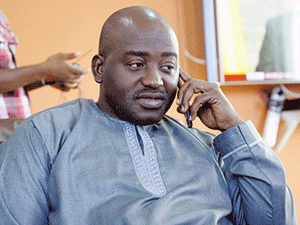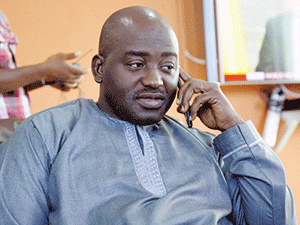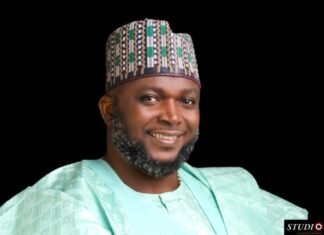The wait to see who will be the first African to announce that they want to become the next president of football’s world governing body, FIFA, is over.
Liberian Football Association (LFA) President, Musa Bility, has thrown his hat into the ring, displaying his usual ease with standing up for what he believes in.
His reasons for running for the top job are largely driven by his desire to see Africa take its pride of place in the global football conversation.
He said: “If Africa does not put up a candidate, it says a lot about us,” he told BBC Sport. “It shows a sense of mediocrity and that our only relevance is to vote and make leaders. I think that is not right.”
”Football is facing a difficult moment… and it is in difficult moments that leaders emerge.
”We are the largest group in FIFA – we must take the lead to reform the organisation.”
With 54 members in FIFA, Africa is the world’s largest voting bloc in football administration, but there are concerns that Europe is trying to change the way decisions are made, which could dilute Africa’s power.
Earlier this month, Germany’s FA president, Wolfgang Niersbach – who took a seat on the FIFA executive committee last month – declared his intention to see changes in the current one country, one vote system.
Niersbach wants “a certain amount of weighted voting based on the size and relevance of the sporting associations”, meaning that more powerful countries such as Germany would end up with more influence than smaller nations such as Lesotho, Swaziland or Guam.
This has caused consternation within African football.
The continent has long been aware of its pivotal role in the global game by virtue of its voting size, and it does not want to let it go.
FIFA members per region
Africa – 54
Europe – 53
Asia/Australia – 46
North and Central America – 35
Oceania – 11
South America – 10
Bility wants to smooth things over and says that with “antagonism very high”, the world “needs a unifier”.
He wants to listen to the “genuine concerns” of the European nations about things like corruption without ceding control to them.
On another issue, Bility thinks the poorer nations are still not getting enough from the much-lauded Goal Project, which awards member associations $250,000 (about N50 million) every year, and the Financial Assistance Programme (FAP) which gives out one-off payments of $400,000 (about N80 million).
He said: “I want to redefine our partnerships to see how those partnerships will directly benefit member associations. Africa and Asia particularly have been left behind. The Goal Project and the FAP are not enough.”
Such a stated aim may well attract interest from Asia and Africa, but it is not clear if it will be enough to get him the FIFA presidency.
It is admittedly a long shot. But in Bility’s mind, it is an effort worth taking for the continent’s reputation.
Early this month, Sepp Blatter announced that he would resign as president of FIFA as reports emerge he is under investigation in the United States.
The Swiss was re-elected last May 29, despite seven top FIFA officials being arrested in a massive corruption probe.
Announcing his shock exit, the 79-year-old Blatter, who has been in power for 17 years, said: “My mandate does not appear to be supported by everybody.”
He plans to carry on his duties until a replacement can be elected in December.














